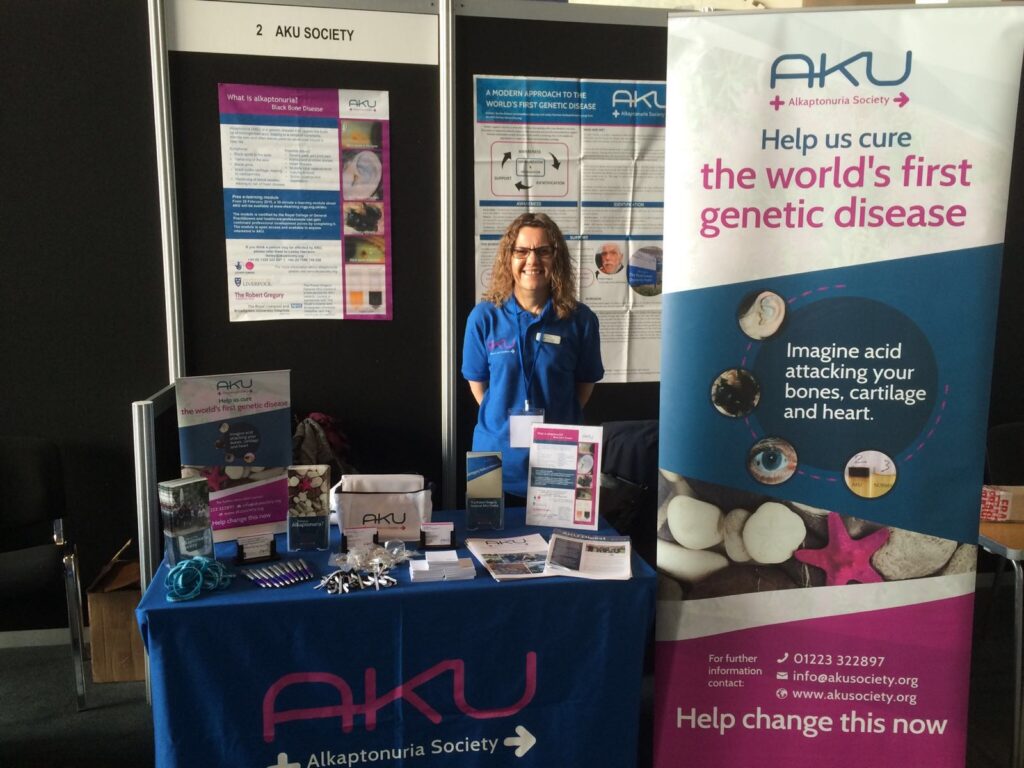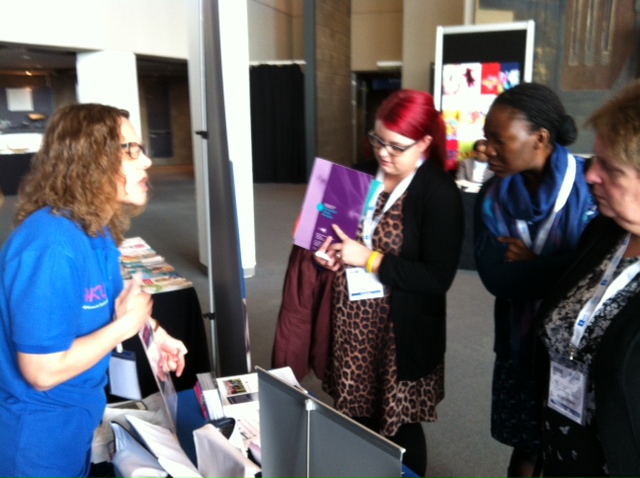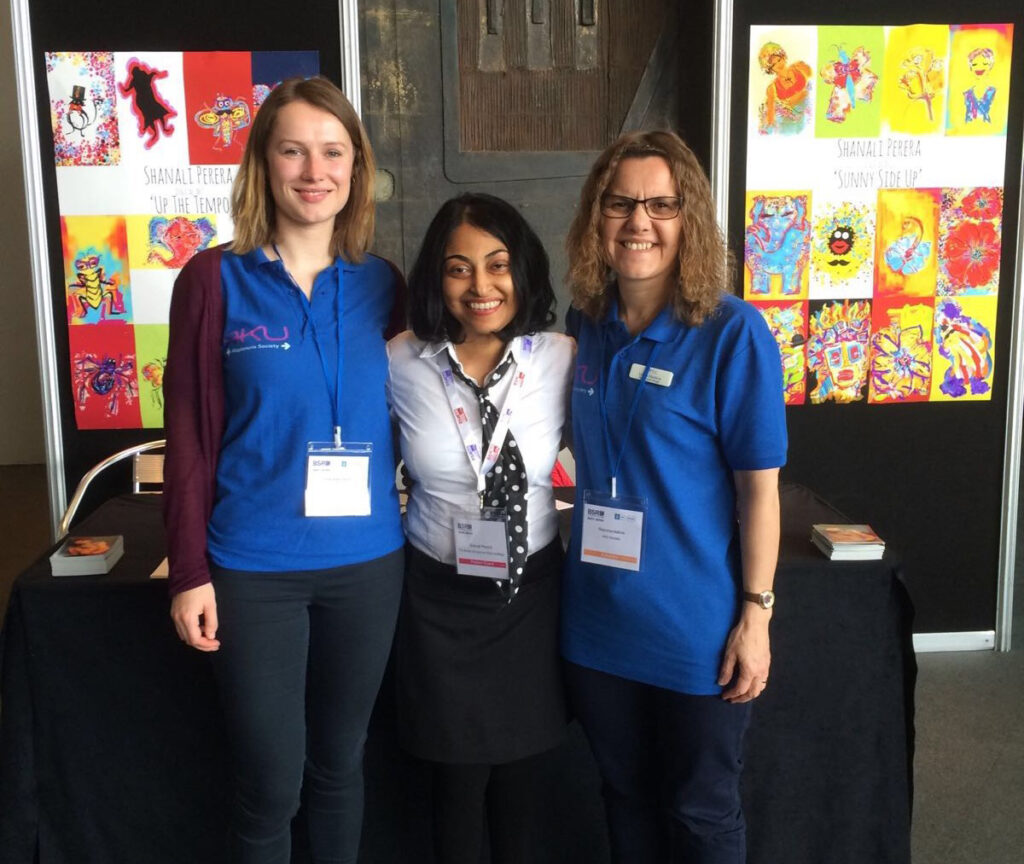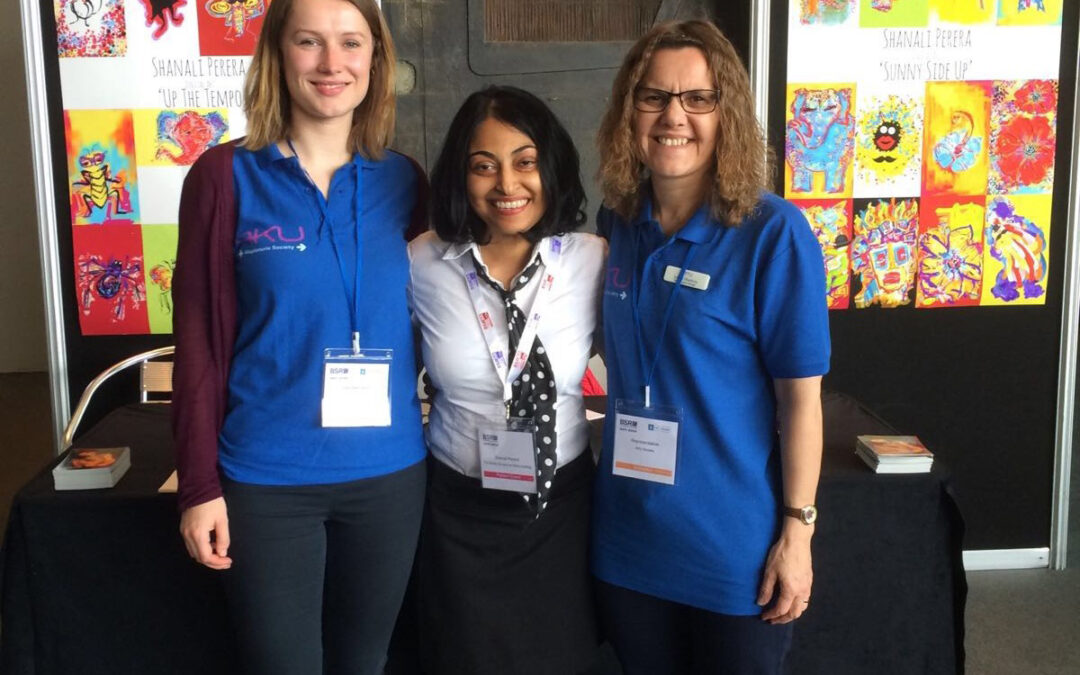Last week Eve and Hannah travelled all the way up to Glasgow to exhibit at the Rheumatology Conference held at the Scottish Exhibition and Conference Centre. This week’s blog talks about the big event and the importance of raising awareness of AKU among healthcare professionals.The
British Society for Rheumatology conference took place on 26th – 28th April in Glasgow. Bringing together 2000 delegates from over 50 countries, the conference hosted a variety of specialist sessions, workshops, lectures and exhibitions while also offering lots of opportunities to network and share experiences. The AKU Society were thrilled to have their own exhibition stand in the ARMA charity village. Our stand provided the perfect platform to educate rheumatologists on the signs and symptoms of AKU, raise awareness and pass on important information about what they should do if they come across an AKU patient.

After setting up our AKU stand on Tuesday morning, we were ready and waiting to meet and share our knowledge of AKU with specialist rheumatologists. Many of the doctors and nurses attending had never heard of AKU and were eager to find out more. AKU is a metabolic condition that causes severe arthritis, so our patients are usually referred to rheumatology specialists. For some, it isn’t until they have their first joint replacement for the black cartilage to be discovered, with further tests leading to an AKU diagnosis. This is why it is so important for us to raise awareness of AKU among rheumatologists, educating them on the signs and symptoms, encouraging them to take our
RCGP e-learning moduleand conduct a simple urine test should they have any concerns.It really was fantastic to meet so many rheumatology nurses, keen to find out more about AKU. Nurses are often patients’ first point of call, so by educating them on the visible signs and symptoms, we hope to improve diagnosis and standard of care. We met 3 nurses based in Plymouth who were fascinated by AKU, having never heard of the disease before. One of the nurses was so enthusiastic she decided do her presentation about the event on AKU to educate other healthcare professionals on the condition.

While many visitors to our exhibition stand had never heard of AKU, some had heard of the condition but were not aware of the
National AKU Centre (NAC) based in Liverpool. This gave us a useful opportunity to tell them about the work currently being done at the NAC and explain to them how to refer patients to the centre should they need to in the near future. For those based outside the UK, we were able to talk to them about our
DevelopAKUre clinical trials, measuring the effectiveness of the first potential treatment for AKU, nitisinone.As well as raising awareness among healthcare professionals, the exhibition was also an amazing opportunity to network with the other charity representatives in the ARMA village. We were able to share our successes and gets tips and advice from them, with useful discussions about communications and funding opportunities.We also met a lovely lady called
Shanali Perera, who was forced to give up her rheumatology specialist training 3 years ago, after being diagnosed with vasculitis. The symptoms in her hands, arms and legs limited her normal daily life and she used digital art to take control, helping her to convey how she was feeling. Shanali shared her amazing artistic creations with us and was keen to use her own experience to encourage others with long-term illnesses to find new ways of managing their condition. We were very inspired by Shanali’s story and are hoping to incorporate a digital art session in our next patient workshop!

rheumatology conference gave us a useful opportunity to network and raise awareness of AKU. It was encouraging to meet so many nurses and doctors eager to find out more about AKU and pass this new information on to others in their field. We left Glasgow armed with new connections and new exciting opportunities.

